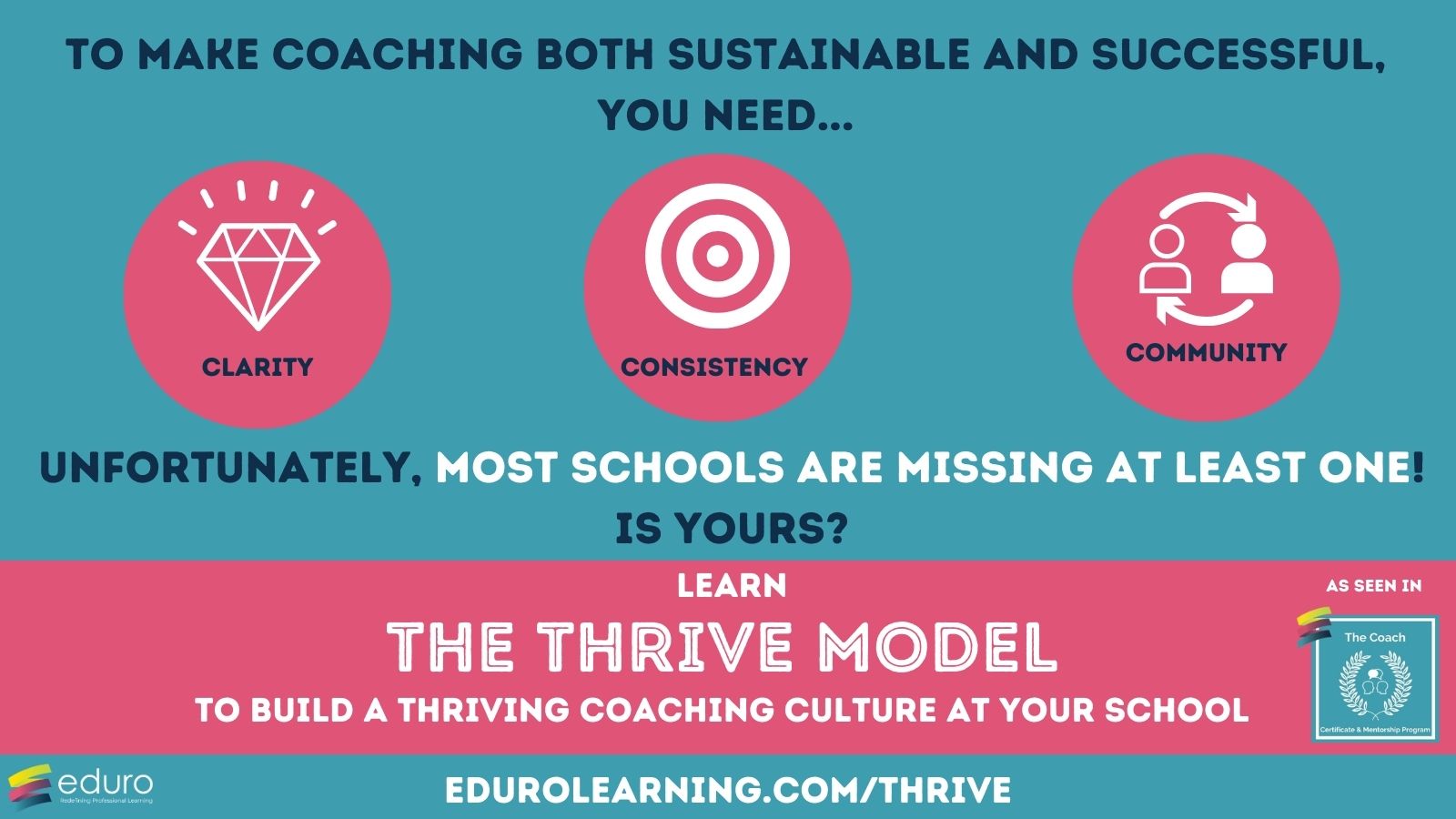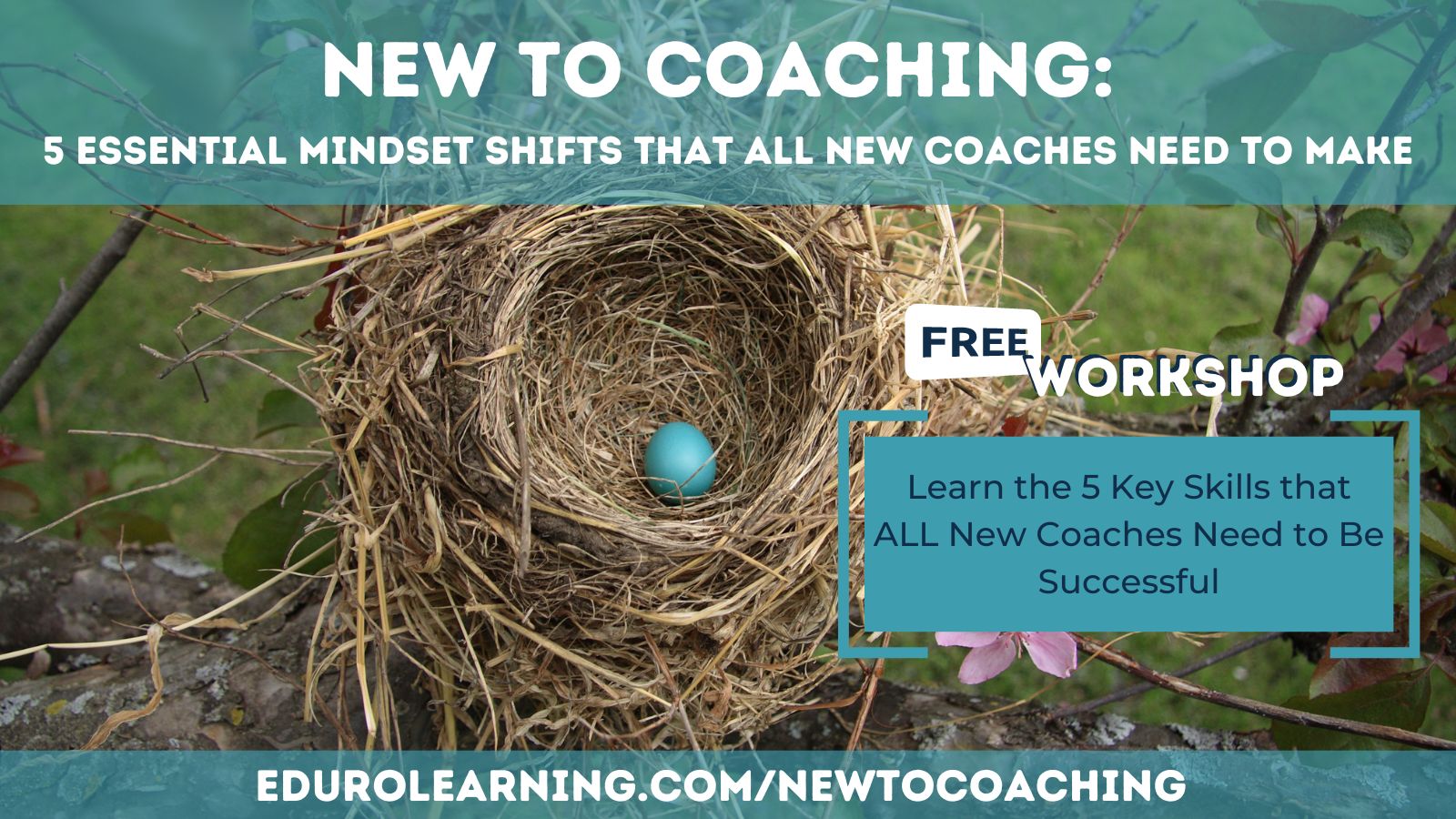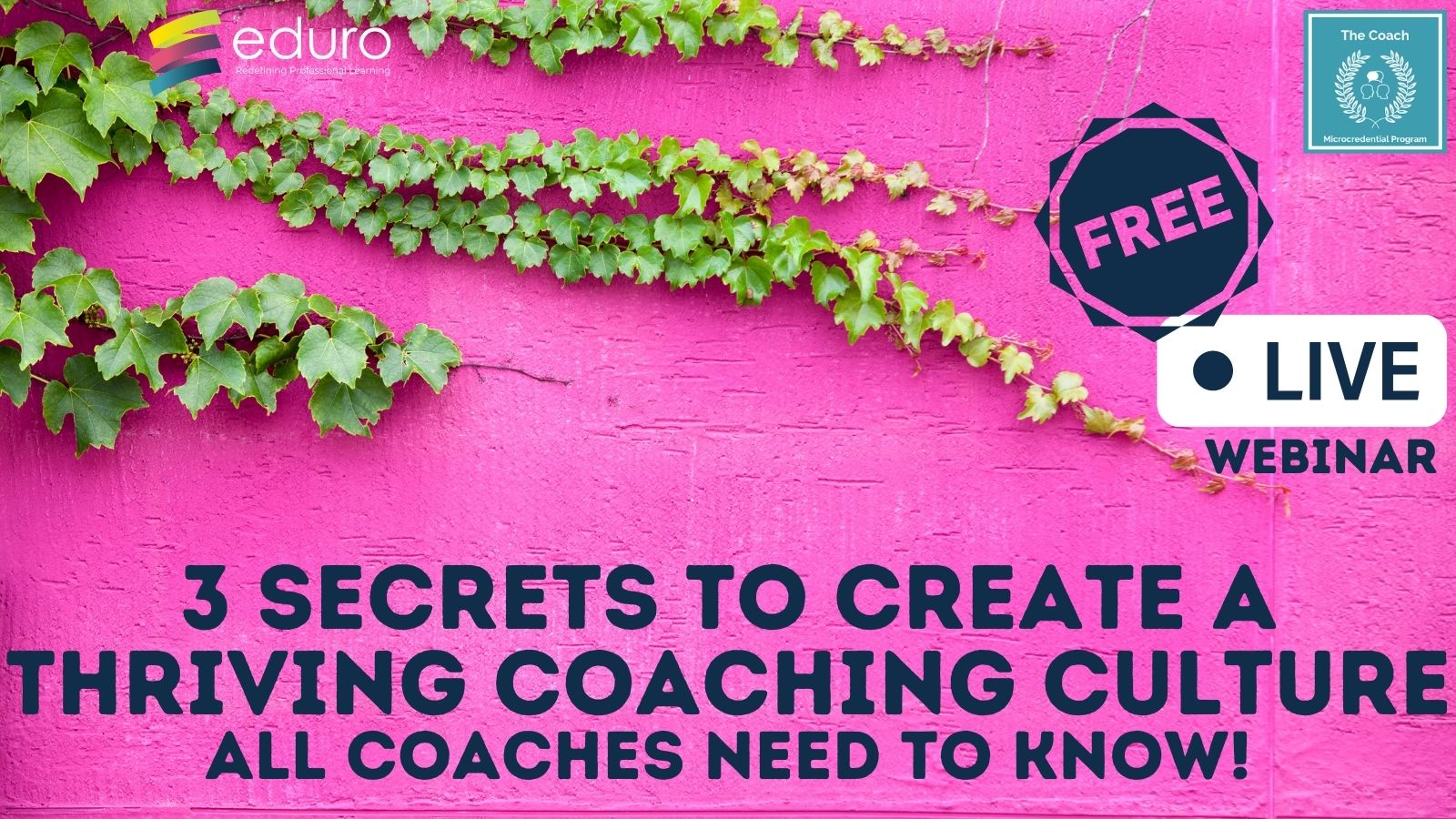In this #coachbetter episode, Kim talks with Cary Hart and Paula Plaza-Ponte, both experienced coaches and members of The Coach Alumni group
They chat about the challenges that coaches go through as they “level up” in their careers. We tend to focus a lot on the needs of new coaches, or the process of building a coaching culture. This episode is about what the journey is like once you’re an experienced coach. They talk about the unexpected challenges, the ways that coaches often lack support in their schools, and the importance of honoring self-care, process time, and potentially a pivot away from schools as you navigate the “messy middle” of a coaching journey.
Connect with our Featured Guests
Subscribe to #coachbetter via your favorite Podcast Player!
Bonus! Watch the Spotlight Version on YouTube!
SHOW NOTES
Tell us about your coaching journey and how you came to be part of this conversation right now
Pau: It began we me being the person who was coached, and surrounded by a robust coaching culture. I was a “fish in water”, it just happened, it was normalized. Foundation was Cognitive Coaching, but we had a lot of different coaching disciplines as well. Seeing coaching work made me an advocate for coaching. That was my pivot, when I moved to the US I realized I wanted to be a coach, since I got so much out of it, I wanted to give something back. In my new school, I had an opportunity to start coaching, but after a big shift in the school, the position changed. When Kim reached out for this group, I joined.
Cary: I started as a tech integrationist, and I was coaching, but I didn’t realize that’s what I was doing. I’ve never had any formal coaching, but I look back now and realize that my PLN was coaching me. When I moved to Moscow, during my COETAIL cohort, is when I started hearing about coaching. I heard about The Coach program. We had literacy coaching training happening at our school. I realized by this time that I was doing coaching. Tech team started realizing that we were ready to do more than just tech skills support. When I got into it, I realized it was more that I wanted to learn about. Left Moscow due to geopolitical situation, and took a job which really didn’t have a coaching element, now I’m trying to figure out how to get back into that role of coaching. I see it’s benefit in empowering teachers in taking control over how to plan for and implement tech. It gives them the knowledge to make better choices in the classroom for using tech, which leads to less substitution and more redefinition. I am forward-looking, if this isn’t the right fit as far as coaching goes, what would my next position look like. Figuring out how to make the next transition.
Pau: Because of that shift, I was able to start, what I call “Guerilla coaching”: it’s not written in your job description, but teachers are ready, and you’re jumping in. A lot of relationships because of that event
Cary: to move from a place where we were collaborative, to a “drop your kids off” type of program, it’s been quite difficult to go from a productive group to a single, but in doing that I have no pressure.
What did you expect your journey to be like?
Cary: My time as a tech integrator helped me have a realistic expectation of this. I knew that coaching was not a mainstream international position, not at every school, guaranteed. I perceived schools that have a coaching program of any kind would be schools that aligned with what I was looking for in a school. I’m realizing through the recruitment process that the paperwork and the websites don’t always match the reality and the culture and that’s making me come up with what are the questions I need to ask so I can get answers about what the schools “real” coaching program and practices. Sometimes we get hired by administrators that are fully on board, but then when you get to the contract signing you find out they’re leaving, and you don’t know how embedded the program is. You need to realize that your job title is not security in an actual coaching position. Having the word coach in your name does not mean you’re always going to be coaching on the day-to-day.
Schools have varying definitions of what it is, what it looks like, there’s a lot of digging.
Pau: My expectations moving from “coaching utopia” (we had access to it, we could practice it, we were given PD around that), it took years and years with a Head that had buy in. We all came together and believed in this thing. I knew leaving that school, it was going to be challenging. Just because you’ve been coached doesn’t mean you’re going to be a good coach. I wasn’t sure how the position was seen or viewed in the US. How do you then continue to upskill. You can’t not coach and do the Coach, so we found ways.
You have to be prepared: between imposter syndrome and losing everyone who’s supporting the program, it was hard.
Cary: Not every person who can coach in an established coach program is comfortable establishing a coaching program. When you’re job hunting it would be good to know if they’re expecting you to establish a program or walking into an established program.
I had a conversation with a school leader recently, who said something along the lines of “Coaches are often the educators who want to do more than teach in the classroom but don’t really want to be in leadership.” Does this resonate with you?
Cary: I have zero interest in admin. Even tech director, as most schools have them is something I’m less interested in. I remember being in the classroom and thinking that I don’t want to be in the classroom for the rest of my career. I like being in the classroom, but I wanted to be challenged by doing something different every year. I was interested in tech integration and then, when I found coaching, I thought it sounded interesting, but I wasn’t sure where I fit into the leadership structure. Who’s in charge of this position, what are the management lines? I’ve been looking for places in school that have a leadership component but aren’t admin. The problem I’ve found is that there’s a very direct line from principal to HoS, but for coaching there aren’t real straight lines. So it’s not clear, what you need to do to get there. Coaching is a gray area.
Pau: There is a component that as a coach you are a leader. For me, the other elements of administration weren’t as exciting as being in the room with other amazing educators making decisions about learning – either for students or for themselves. The impact is so much greater than the one classroom they are in. You know it in your heart, there’s so much more you can do. Other people see it, you have to own it.
EXPLORE THE THRIVE MODEL
Are you working on building a coaching culture in your school setting?
To make coaching both sustainable and successful, you need clarity, consistency, and community.
Unfortunately, most schools are missing at least one! Is yours?
Use the Thrive Model to find out!
Developed after working with hundreds of coaches and leaders in international schools around the world, the Thrive Model incorporates both the macro view of a coaching program, and the micro view of a coaches practice, to bring together the three essential elements to make coaching both sustainable and successful.
Explore all of our resources about the Thrive Model at edurolearning.com/thrive

SHOW NOTES continued…
How did the journey go like you expected? How did the journey not go like you expected? What frustrations did you face in your journey?
Pau: I had my eye on the prize, I really wanted to be a coach, so I found pockets where I could explore and try my coaching. When you’ve been in a place where you’ve seen it work and you’ve seen it work, and then go to a place where the norms, structures, systems are not there, you really want it for them. That means, as an “other” in this space, it’s not about just “choosing a model” it’s about trust and relationships and then building an understanding of coaching. Ignorance would have been bliss. There was a big gap between my hopes (blue sky thinking) and what was happening in reality.
Cary: The biggest frustration has been moving outside a PYP environment, and this community doesn’t function in this way, there’s a lack of understanding about why I would ask questions to support integration. Because they don’t have a collaborative planning culture beyond their teams. I’ve been in a collaborative environment for so long, it was a real shock to my system that there was a lack of understanding about why collaboration would be a benefit to everyone. It’s taken a long time for me to realize that I can’t be a one-woman bulldozer and make this happen, so I’ve been focusing on what I need to do for myself to feel like I’ve been successful, which has led to some guerilla coaching.
Pau: when you are invested in a culture of coaching, or values and beliefs around collaboration, you have to stay in a school. The only way to get it to grow is to stay.
Cary: when you’re in a more specific role and you have a clear vision / understanding of what that should be, and the school leaders don’t share that, it’s very difficult
When we think about coaching and coaches, we can be in a tough position because: there’s not a clearly defined path for coaches, or from coaching to senior leadership. As coaches we have an idea of what we want to be, but we don’t always know how to get there. Because there’s a lack of understanding about what coaching is and how it works, often leaders aren’t sure how to support us either. We know the path, but everyone else around us doesn’t. The school is afraid to pause and say “how can we use these amazing people?” Coaches often get stuck in a place where they have been encouraged by leaders to grow but it’s often unclear what ‘you’ are aiming for vs your very clear understanding of where you are going.
Have you chosen to stay in K-12 Education or leave?
Pau: I’m now a “former teacher” officially. I joined AAIE and I’m doing their membership management. It’s still education-adjacent. It’s great to hear these conversations with a different group of people in the school.
Cary: I’m still in K12 education. I’m not at the moment looking to leave, but I have been batting around a “side hustle”. Being able to talk about what I would have done, this is what I’m doing instead, is helping me stay connected enough to the role in my head that I want. I don’t feel like I’m losing that.
Teachers have a strong self-identity that defines us in many ways. Having parts of this teacher identity, and being able to have conversations around what I would do in a coaching environment, vs what I’m doing in a non-coaching environment, is helping me feel like I’m staying connected to it.
What is the PD path for coaches? I’m going to a conference that has 1 session for a 3-day conference. I’ve done the Coach, what is my process to keep growing? A lot of that has been the Alumni Group, this project we’re working on, being coached by Kim, having a colleague I can work with.
When we think of making a change, or pivoting, as an educator, it’s so hard for teachers because teaching is such a part of our identity.
Pau: Once a coach, always a coach. You’re a coach because people trust you, and you can ask good questions that make people think.
As you think about other coaches potentially going through all / any of this what advice might you share for honoring the pause, finding your pathway, or maintaining a habit of self-care in a very emotionally draining position?
Cary: learning how to say “no” in the sense that you can’t do everything, you can’t be with everybody, you can’t take every opportunity for coaching. That’s a bit of self-care, it’s a bit of honoring the pause. As a coach, who is a “yes” person, I have to learn how to protect my time and my transitions in time and my pauses in between. We need space between coaching conversations, it takes almost as much time as the conversation for me to reflect, document and plan for the next one. If I don’t give myself time in my calendar, I could very easily get overwhelmed with the fact that there’s no documentation happening. You’re one person, you can’t do everything, it’s ok, it’s not going to reflect badly on you, it’s going to reflect better because you’re giving people the time they need to succeed.
Pau: if you’re just saying “yes, yes, yes” it’s actually about people pleasing (for you), but you need to find safety and space for both of you. It’s about being intentional in protecting the time you’ve chosen to take care of yourself. Intentionality means it’s embedded in a routine and there are systems in place. That’s the only way you can prioritize it and honor it. Grind culture is relentless. You’re better when you say “no” to that 100th thing. It’s about unlearning the romanticizing grind culture / business. Highly functioning international schools that have amazing super achiever teachers, it’s implicit, you have to protect yourself from that because it can suck the life out of you. It took me many years to let go of that.
Kim: less is more – it’s about quality not quantity. Recovery allows you to show up more authentically, intentionally when you’re present
Cary: Having systems to protect your time and space, time blocking and then recording what work you did, so you have a record of how you spent your time.( totally love to do a podcast about this too!)
Ready to learn more about building on your instructional coaching experience?
If you’re ready to dig deeper into how Clarity, Consistency, and Community can help you develop and expand your coaching role – or if you’re new to instructional coaching and you’re curious about getting started, join us for one of our courses for coaches!
One of the things we’re most proud of here at Eduro is that there’s no one-size-fits-all learning – you always have choice and voice in how you learn with us. Today’s video highlights one of the key themes that you’ll find in three of our programs, and if you’re curious to take your learning deeper, we have three great options for you.
New Coaches:
If you’re just getting started as a coach, and you want to learn how to make these mindset and skillset shifts, watch our New to Coaching Workshop, which will also tell you all about our brand new course, Getting Started as a Coach.

Experienced Coaches:
If you’re already a coach & you want to think about being more intentional & strategic in your practice, watch our workshop on the Thrive Model for Coaching Success which will help you evaluate your program to see where you may have room to grow – and help you decide if our year-long mentorship and certification program, The Coach, is right for you, right now

Just like all our learning experiences, the content in both of these courses is self paced so you get access to everything immediately – but you get so much more: when you join the course, you get access to our #coachbetter global community with optional group coaching calls at various time zones to meet & connect with other coaches PLUS private office hours with me to get all your questions answered & work through anything coaching related in your unique school context.
Wherever you are in your coaching journey, we can support you!
For All Coaches
Connect with us!
- Subscribe to the podcast iTunes | Spotify | Stitcher
- Follow us on social media: Twitter | Instagram | LinkedIn
- Join our #coachbetter Facebook group
- Explore our courses for coaches
![Exploring the “Messy Middle” of an Instructional Coaching Journey with the Alumni Team [Ep 225]](https://res.cloudinary.com/edurolearning/image/upload/v1697695665/coachbetter%20Podcast/Messy_Middle_v6t26h.jpg)




Recent Comments